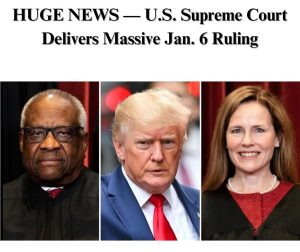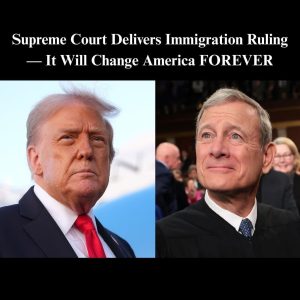The Supreme Court on Tuesday declined to hear an appeal from John Nassif, a Florida man convicted for his involvement in the January 6, 2021, attack on the Capitol.
Nassif challenged the constitutionality of a law that bans “parading, picketing, and demonstrating” inside the Capitol, arguing it violates the First Amendment’s protections of free speech and assembly. The charge is one of the most frequently applied to defendants from the January 6 attack.

President-elect Donald Trump is considering pardons for many involved in the Capitol riot.
The defendant, 57, was sentenced to seven months in prison after being convicted of multiple misdemeanors, including disorderly conduct and violent entry. Prosecutors had initially recommended a sentence of 10 to 16 months, the Washington Examiner reported.
Nassif’s public defenders argued that he entered the Capitol nearly an hour after it was breached and remained for less than 10 minutes, engaging in what they described as “core First Amendment expression” that was “in no way disruptive.”
Lower courts, including the U.S. Court of Appeals for the D.C. Circuit, rejected Nassif’s arguments. A three-judge panel ruled that the Capitol buildings are not a public forum open for protests, allowing the government to impose reasonable and viewpoint-neutral restrictions to maintain order and security.
“Nassif has not established that the Capitol buildings are, by policy or practice, generally open for use by members of the public to voice whatever concerns they may have — much less to use for protests, pickets, or demonstrations,” the panel stated.
Nassif’s petition highlighted a conflict between the D.C. Circuit and the D.C. Court of Appeals regarding the Capitol’s status as a public forum. While the D.C. Circuit has classified the Capitol buildings as nonpublic forums, allowing for broader restrictions, the D.C. Court of Appeals has recognized certain areas, such as the Capitol Rotunda, as public forums where speech restrictions must be narrowly tailored.
U.S. District Judge John Bates had previously upheld the parading charge against Nassif, citing established precedents that permit reasonable restrictions on First Amendment activities within the Capitol. The government argues that such restrictions are necessary to prevent disruptions to congressional proceedings and to safeguard the security of the legislative process.
The Supreme Court’s decision to refuse hearing the case leaves the lower court’s ruling intact, upholding the government’s ability to prosecute individuals under the parading statute. This ruling has significant implications for more than 460 defendants charged with the same misdemeanor related to the January 6 riot—making it the most common charge among the over 1,450 people prosecuted to date, according to the Department of Justice.
.





